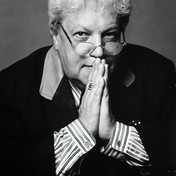Ilumencarnados seres

guilherme araújo
Interviews
Ana de Oliveira – It seems that you felt that Brazilian music didn’t sound interesting to the youth, who was more interested in the pop international wave than in the politically engaged MPB. As a sensitive manager, what did you do to gain the young audience?
Guilherme Araujo – We had to make use of the upcoming technology. We had to use electric guitars.
Ana de Oliveira – You were the target of hard criticism and got innumerous disaffection because you stimulated a change in the Bahian’s look, right? What did you aim at when you did that?
Guilherme Araujo – Yes. It was a creative challenge for me and for them. It was fun too. We had to do what we wanted to do. The Brazilian managers were not interested in creating alongside their clients. They were just worried about agendas and sales. And I, as a show business man, acted not only as a as manager but as a director too. And I have always been plugged in what goes on in the world.
Ana de Oliveira – To what extent do you think that the visual change contributed to Caetano and Gil’s broader popularity?
Guilherme Araujo – They started to represent the example of what was going on in the world to the younger Brazilian generation.
Ana de Oliveira – When did you realize Caetano Veloso’s enormous charisma? For he didn’t seem talented on the stage until then, although he already was an extraordinary composer.
Guilherme Araujo – As soon as he started performing at Record Festivals and traveling with me in Brazil and in the world. He used to do many interesting things in his first appearances. The lipstick, the earrings, the theatricality … And a lot of irreverence.
Ana de Oliveira – What did you have in mind when you suggested that Caetano write a song with the sentence “É Proibido Proibir” (It’s forbidden to forbid)?
Guilherme Araujo – The 60’s big revolution turned the world into just one thing. At that time, I was in Paris and I saw this sentence scribbled on a wall. Its author was a German outlaw who lived in France, whose name I can’t remember. As we lived in a dictatorship, I though that the sentence would fit in Brazil too.
Ana de Oliveira – When you suggested that this song be included in the International Song Festival (FIC), did you imagine that it would ignite such an outrage in the audience?
Guilherme Araujo – Music and theatre are like that: depending on what happens, you transform it. The audience was so aggressive that Caetano answered with the speech. I thought the song would be booed and applauded, as usual. But it turned into a happening…
Ana de Oliveira – To you, what was the most pungent episode of the Tropicalista period?
Guilherme Araujo – Caetano and Gil’s arrest. When Caetano married Dedé, we rented the apartment upstairs from mine, on São Luís Avenue, in São Paulo. Dedé called me at six in the morning to say that two men from the Federal Police were there. I went upstairs and saw the arrestment. They took Caetano saying that they would bring him back in two hours, after an interview. And after that his disappearance for ten days, confinement, exile…
Ana de Oliveira – Nowadays, what is your reflection about that moment in the Brazilian musical and cultural history?
Guilherme Araujo – At that time, music was important all through the year, having various successive movements, Bossa Nova, Jovem Guarda, Tropicalismo… Today it is pleasant, but it is not connected to other things like before, in the whole world. Caetano and Gil were ready to be leading all that.





















